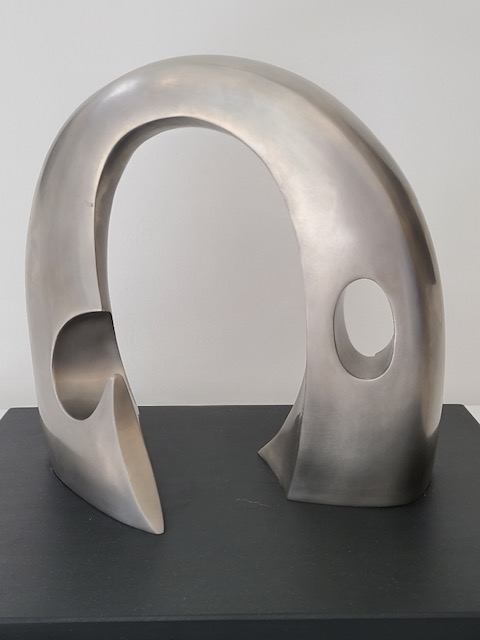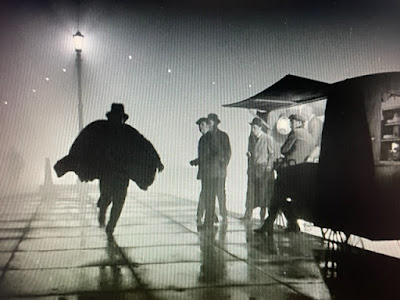Mindy Peterson has been hosting the Enhance Life Through Music podcast about music since 2019 and a piano teacher since 1991 to students ages kindergarten to
adult. She began taking piano lessons at the age of 6. Like many who had an early intro to playing an instrument, music has been an integral part of her life ever since. She not only enjoys listening to live music and expressing herself through music, her podcast shows how interested she is in learning more about the benefits of music, and passing on that love of music to her students and others.This past fall Mindy visited Duluth to learn more about the influence our city and the Northland had on Minnesota's latest Nobel Prize recipient. This visit became the foundation for a December podcast on the impact of Bob Dylan and his music.
EN: Can you briefly share your background with regards to music? What you have created here— your podcast‐‐clearly didn’t spring out of thin air.
Mindy Peterson: I started taking piano lessons in first grade, and have taught piano lessons since 1991. I’ve always been intrigued by the many ways music benefits our lives, and was fascinated with news articles, books, and studies showing music’s power in protecting the brain from dementia; transforming our experience of a movie scene; increasing athletic endurance; increasing literacy skills in children with dyslexia; and more. I believe passionately in the power of music to enhance our lives, and wanted to shout it from the rooftops in order to help others make life better through music, and also to advocate for musicians and music education. Music advocacy and education are two sides of the same coin; and when people understand the value that music brings to our shared human journey, I believe they will want to invest in musical experiences and training.
EN: Music is probably something important to most of our lives. What was it that triggered you to start a podcast about music?
MP: You’re so right – music affects ALL of our lives, whether we consider ourselves musicians, or not! While there are exponential benefits for those who actively make music, I was struck by how music can make life better in so many ways for all. I observed how frequently my non‐ musician friends made casual comments referencing music, such as:
“I heard this song in a store the other day, and it instantly took me back to senior prom!” (Music is the sound of emotions, and one of the last memories to fade from our brains.)
“After waiting on hold, I could NOT get that hold music out of my head the rest of the day!” (Earworm!)
“Thank goodness ‘Don’t Stop Believin’ was playing – that’s the only way I made it through the last set of that workout.” (Music has been called “legal doping” because it can enhance athletic performance and endurance up to 15%.)
When I first discovered podcasts, I was hooked! As I explored shows and found new favorites, it occurred to me that podcasting was the perfect medium for showcasing the myriad applications of the power of music. Surely such a podcast must exist! I went on the hunt for a podcast fitting this description, but couldn’t find it. Enhance Life with Music was my creation of the podcast I wanted and couldn’t find.
EN: You cover such a wide variety of topics showing ways that music is such an important component of our lives. What have been some of the biggest insights for you personally?
MP: It is such a treat to meet and speak with people from around the country and globe about music’s application in fields as seemingly disparate as sports, social justice, science, business, medicine, mental health, entertainment, education, and history. I’m continually amazed by two things:
Music’s ability to bring people together. It is one of very few things (food possibly being another?) that can lower walls and bond people who otherwise may have nothing in common – and in fact may have reason to see one another as enemies (such as the Israeli and Palestinian youth featured in Ep. 123).
The endless applications of the power of music. One of my hesitations in starting this podcast in August 2019 was the apprehension that I might run out of topics. I didn’t want to launch a podcast, only to have the well of ideas run dry within a few months. Well... over two years and 120 episodes later, the list of potential topics continues to grow. Music is the salt of life – it just makes every aspect of life better!
EN: I think the way Hollywood directors use music to add dimensions to films is intriguing. Stanley Kubrick’s films are a superb example. So many classic films give us songs or tunes as a takeaway. “Ding dong, the witch is dead!” What an anthem. I read that “Somewhere Over the Rainbow” was the number one song of the 20th century. Care to comment on this?
 |
| Zentangled Piano by Esther Piszczek |
Another factor of film music that is intriguing is the fact that sometimes the most skillfully composed scores are the ones that we don’t even notice. The score plays into the storyline and overall experience so skillfully and seamlessly that we’re not consciously aware of the music as it’s playing. And you can have equally skillful and outstanding scores that are epic and totally do capture your attention (such as John Williams’ Star Wars scores).
I suppose this fascination is one reason that several episodes explore facets of music in movies/TV!
By the way, your reference to “Somewhere Over the Rainbow” reminds me of one of my all‐ time favorite music quotes, which is by that song’s composer, Yip Harburg:
"Words make you think a thought. Music makes you feel a feeling. A song makes you feel a thought."
EN: I like how you discuss practical things like how to find a piano teacher, but also get into neuroscience and the ways music shape us, inspire us, lift and even heal us. Do you have a set of guiding rules regarding what you cover and don’t cover on your Enhance Life With Music blog? Can you share them?
MP: In addition to making life better through music, I look for subjects that:
--Educate me.
--Expand my world.
--Inspire me.
--Help me.
--Entertain me.
The more boxes I can check with an episode, the better!
EN: Thanks for everything you're doing. I have no ideas where we'd be if it weren't for music, especially this past two years.
Check out Mindy Peterson's podcast here: Enhance Life with Music
www.mpetersonmusic.com
Related Links
Music of Our Lives: Songs That Make Me Think of Various People I've Known
My Early Introduction to Classical Music... And My Father's
Oli Braithwaite of Stars & Catz on the Power of Music
Episode 118: Bob Dylan Case Study on the Power of Music to Change the World
Quiet Heart Comfort: Music CDs and Videos






































